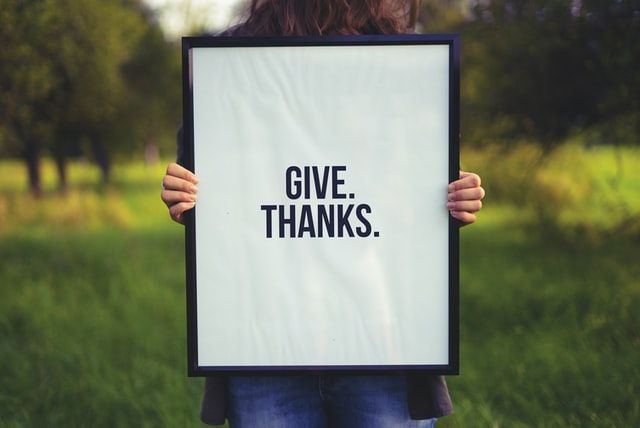We have to lower our expectations for expectations give birth to resentment. It’s amazing how we struggle with the way things are and how we expect things to be different.
Usually our expectations are fuelled by desire and when we get what we desire our expectations aren’t met and we are disappointed. I was once after a pair of expensive boots that I saw in Reid’s shoe shop in Sandy Row—I desired them and struggled within myself as to if I could afford them. I had to have them. But when I brought them hom,e they didn’t meet my expectations and now I rarely wear them.
Sometimes with the ones we love and the ones we don’t, we have an expectation of how they should behave and if they don’t meet our expectation, we become upset.
Now look at what happens when we don’t meet our own expectations. How does that make us feel? Do we react with a sense of letdown? Are we harsh on ourselves? Does this reaction lead to a low mood or a sense of unhappiness based on our expectations?
Take time to reflect on this. It took me time to realise that I had to lower my expectations. Recently my teacher Paul Haller gave a talk on this very topic which was a healthy reminder for me, to check in on my expectations of, people, places and things and how I allow this internal stimuli to dictate my state of mind, as if I had no control over it.
The good news is that we have and yes we can. I believe the secret lies in an attitude of gratitude. A wonderful AA friend of mine, Derry John told me you can’t put a drink in a mouthful of gratitude, and I know that to be true.
It’s whenever we start taking people for granted that resentment sets in. The amazing Benedictine monk Brother David Stendl-Rast Is the founder and senior advisor for A Network for Grateful Living.
Brother David was shaped by 20th century’s catastrophes. He’s a teacher beloved around the world—he makes useful distinctions around experiences that are life-giving and resilience-making. He calls joy, “ the happiness that doesn’t depend on what happens”.
In honor of #Thanksgiving this week, we're sharing thoughts on the importance of #gratitude!https://t.co/IeoIEPM9jn pic.twitter.com/Xzi3Tw0Gft
— PsychAlive (@PsychAlive) November 23, 2015
I would highly recommend that you check him out. He’s also very very funny. I asked my friend Paul Haller, who is a good friend of Brother David’s (they hold joint retreats every year) to invite Brother David who is now in his nineties to come to Belfast. He did and this was Brother David’s reply, “tell Frank that at my age I don’t buy green bananas”.
I also love his quote, "The root of joy is gratefulness…it is not joy that makes us grateful; It is gratitude that makes us joyful."
A GRATITUDE DIARY
For me an easy way to become grateful was to keep a gratitude diary. Try it. Write down a number of things that you are grateful for and you’ll find that the list grows and grows the more you practice gratitude.
Start simple, like having access to water — both hot and cold and drinking water. Having a home, friends and family. And look around you at the beauty of nature: the flowers, trees and our feathered friends. Be grateful for our faculties, our senses and our mobility — all that we can do rather than focusing on what we can’t do.
“I don't want to end up simply having visited this world.” ~ Mary Oliver
— Teri (@TeriSelvaggi) August 4, 2021
© Dorothea Lange pic.twitter.com/KiEw9pSKPh
Take a moment to sit and rest in this moment, give yourself permission, to experience this moment, right here, right now. Enter into the mystery of this precious life and the many gifts that our bestowed on us. Open our hearts to the gift of gratitude to be grateful for this precious life.
Let’s reflect on this wonderful poem 'Gratitude' by Mary Oliver.
GRATITUDE
What did you notice?
The dew-snail;
the low-flying sparrow;
the bat, on the wind, in the dark;
big-chested geese, in the V of sleekest performance;
the soft toad, patient in the hot sand;
the sweet-hungry ants;
the uproar of mice in the empty house;
the tin music of the cricket’s body;
the blouse of the goldenrod.
What did you hear?
The thrush greeting the morning;
the little bluebirds in their hot box;
the salty talk of the wren,
then the deep cup of the hour of silence.
When did you admire?
The oaks, letting down their dark and hairy fruit;
the carrot, rising in its elongated waist;
the onion, sheet after sheet, curved inward to the pale green wand;
at the end of summer the brassy dust, the almost liquid beauty of the flowers;
then the ferns, scrawned black by the frost.
What astonished you?
The swallows making their dip and turn over the water.
What would you like to see again?
My dog: her energy and exuberance, her willingness,
her language beyond all nimbleness of tongue,
her recklessness, her loyalty, her sweetness,
her strong legs, her curled black lip, her snap.
What was most tender?
Queen Anne’s lace, with its parsnip root;
the everlasting in its bonnets of wool;
the kinks and turns of the tupelo’s body;
the tall, blank banks of sand;
the clam, clamped down.
What was most wonderful?
The sea, and its wide shoulders;
the sea and its triangles;
the sea lying back on its long athlete’s spine.
What did you think was happening?
The green beast of the hummingbird;
the eye of the pond;
the wet face of the lily;
the bright, puckered knee of the broken oak;
the red tulip of the fox’s mouth;
the up-swing, the down-pour, the frayed sleeve of the first snow—
so the gods shake us from our sleep.








